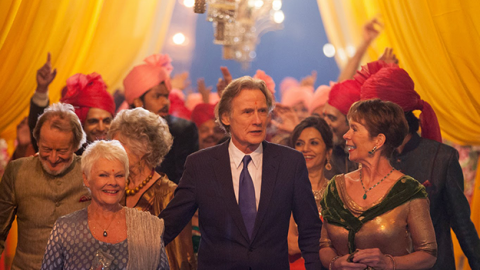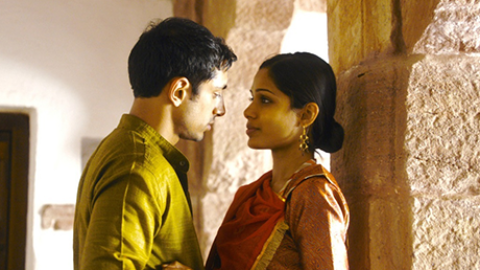Deep Focus: The Wedding Guest
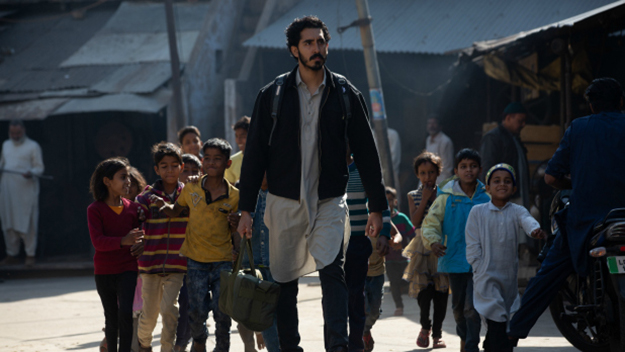
Writer-director Michael Winterbottom’s confident technique holds us for only half the running time of The Wedding Guest, a flimsy thriller about a tight-lipped lone wolf possibly named Jay (Dev Patel). He flies from London to Pakistan to execute a risky criminal job. He must then improvise a getaway through India with Samira (Radikha Apte), an equally enigmatic young woman. For me, the wittiest aspect of the movie was the romcom-like title. Going into the film without knowing anything about it, I expected Patel to appear in his happy Best Exotic Marigold Hotel mode. So I was pleasantly surprised to watch him give a lean, magnetic performance that’s hands down the best thing in the movie.
In mission mode from frame one, Jay pretends to be invited to Samira’s wedding so he can get close to the compound where the nuptials will take place. Divulging more would be unfair to the film, because Winterbottom has bet the farm on a couple of big surprises. The perfect title for this improbable tale of flight and flirtation between a kidnapper for hire and his victim—and for a reviewer attempting to explicate it—would be Don’t Say Anything.
Winterbottom does know how to zero in on tingling figures in a landscape. Shooting on location, he captures the unexpected eeriness of thick morning fog, the well-worn chaos of dusty village streets, the turbulence and density of neon-lit main drags in Indian cities, and the lulling sensuality of the subcontinent’s southern shoreline. Winterbottom and cinematographer Giles Nuttgens are as nimble with their camera as Jay is with multiple cellphones and SIM cards (next to firearms, his most essential tools). They make his preparations and early travels colorful and tense.
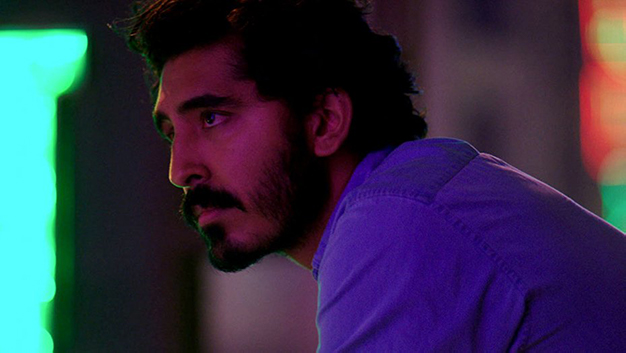
The bracingly sharp images combine with Jay’s peekaboo charisma to bring out the menace in airports and checkpoints, the unsettling casualness of a savvy pro buying two handguns in a tidy shop, and the dangers of illegal transactions carried out in unassuming storefronts or messy rear offices. Who is this disciplined young man? He even keeps to his prayer schedule, visiting mosques at every stopover along the way.
As the tense, contained traveler moves through Pakistani backwaters where workers operate clanking machines in the open air, we wonder whether he’s a civilian on a vendetta, a gangster, or, perhaps, a terrorist. We soak up unstressed details, like the prayer beads tacked on a clerk’s wall next to a Pakistani crescent, guessing whether they’re relevant to the story or merely part of the atmosphere. We react with relief to random sights such as sandals adorned with baubles that resemble multicolored ping-pong balls.
Unfortunately, once the movie takes two abrupt, homicidal turns, it’s not emotionally expressive or imaginative enough to engage us in the mysteries of a man and woman who become joined in an ambiguous, hazardous bond. When Winterbottom worked off complex real-life conflicts, as in Welcome to Sarajevo (1997) and In This World (2002), or riffed on literary works, as in his Mayor of Casterbridge–based The Claim (2000), his roving eye for telling behavior and risky business–sparked epiphanies. He’s ideally equipped to follow the riotous team of Steve Coogan and Rob Brydon (playing satiric visions of themselves) into Northern England, Italy, and Spain in his ongoing Trip movies and TV series. He helps them apply an ironic or sardonic edge to potentially sentimental buddy-movie tropes. In this film, his attitude is equally cool and crafty, but it’s also hollow.
Patel previously showed in Lion (2016) how much his presence has deepened since his exuberant debut as the resourceful teenager in Slumdog Millionaire (2008) and his deft comic turn as the insecure hotelier in the two Marigold Hotel movies (2011, 2015). He’s in fighting trim to play a gun for hire. His face looks tauter and more dramatic than ever. His expressions are tight, but never blank: we sense the banked feelings behind the emotionless mask.
He matches up intriguingly with Apte’s Samira, who can be sullen and glowing, petulant and ravishing in turn. But we know even less about her than we do about him. She left Pakistan for Great Britain when she was a girl, she studied pharmacy at college, and she has a disreputable lover—a rich young British Indian (Jim Sarbh). At some point in England her life, as Jay puts it, went “off the rails.” She responds, “They went off the rails first.” Meaning who? Her family? We must take it on faith that she needed to go back to Pakistan, where she got caught up in the usual patriarchal marital customs. Is she a nascent feminist heroine, or a drifter, or spoiled brat? Winterbottom may think she’s more sympathetic than his actual portrait of her. She’s only momentarily fazed when Jay kills one amiable, innocent man and one corrupt, selfish jerk.
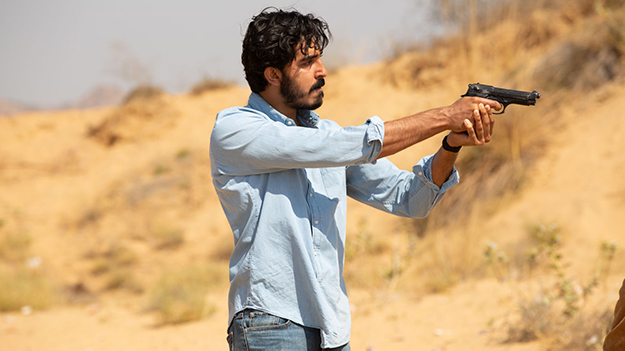
As Jay and Samira weather successive crises, they strike an unspoken deal that they’ll at least do no harm to each other. As they share close quarters in trains, vans, and hotel rooms, their physical attraction grows into a slow-poison kind of love. The movie gambles that we’ll get caught up in the pair’s amorous feints and power plays as she and Jay become both interdependent and intimate. Jay never completely loses his head—he always plays with a full deck—but we may be taken aback that with her, he lays all his cards on the table.
If our sympathies fall on Jay’s side, it’s because Patel acts with an electric wariness that keeps jolting us awake, even when he does nothing more than neatly pack his clothes. Maximizing his suitcase space is one of his particular talents, like Colleen Camp’s in Michael Ritchie’s beauty-pageant comedy Smile. In almost all his movies, Winterbottom is a marvel at capturing offhand moments and eccentric traits, as Ritchie did. But he’s no genre specialist (neither was Ritchie). The Wedding Guest attempts an unlikely, romantic variation on noir themes of twisted loyalties and amorality and escape. Yet Winterbottom lacks the true noir artist’s relentless drive and gift of getting us to root for the success and failure of criminal plans. The film ultimately depicts a pragmatic killer as a man of feeling. The result is strictly soft-boiled.
Michael Sragow is a contributing editor to Film Comment and writes its Deep Focus column. He is a member of the National Society of Film Critics and the Los Angeles Film Critics Association.



